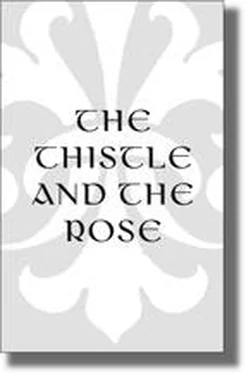Jean Plaidy - To Hold the Crown - The Story of King Henry VII and Elizabeth of York
Здесь есть возможность читать онлайн «Jean Plaidy - To Hold the Crown - The Story of King Henry VII and Elizabeth of York» весь текст электронной книги совершенно бесплатно (целиком полную версию без сокращений). В некоторых случаях можно слушать аудио, скачать через торрент в формате fb2 и присутствует краткое содержание. Жанр: Старинная литература, на русском языке. Описание произведения, (предисловие) а так же отзывы посетителей доступны на портале библиотеки ЛибКат.
- Название:To Hold the Crown: The Story of King Henry VII and Elizabeth of York
- Автор:
- Жанр:
- Год:неизвестен
- ISBN:нет данных
- Рейтинг книги:5 / 5. Голосов: 1
-
Избранное:Добавить в избранное
- Отзывы:
-
Ваша оценка:
- 100
- 1
- 2
- 3
- 4
- 5
To Hold the Crown: The Story of King Henry VII and Elizabeth of York: краткое содержание, описание и аннотация
Предлагаем к чтению аннотацию, описание, краткое содержание или предисловие (зависит от того, что написал сам автор книги «To Hold the Crown: The Story of King Henry VII and Elizabeth of York»). Если вы не нашли необходимую информацию о книге — напишите в комментариях, мы постараемся отыскать её.
To Hold the Crown: The Story of King Henry VII and Elizabeth of York — читать онлайн бесплатно полную книгу (весь текст) целиком
Ниже представлен текст книги, разбитый по страницам. Система сохранения места последней прочитанной страницы, позволяет с удобством читать онлайн бесплатно книгу «To Hold the Crown: The Story of King Henry VII and Elizabeth of York», без необходимости каждый раз заново искать на чём Вы остановились. Поставьте закладку, и сможете в любой момент перейти на страницу, на которой закончили чтение.
Интервал:
Закладка:
The men departed and Henry, trying to curb his impatience, eagerly awaited their arrival.

Tyrrell was wary. Suffolk had been arrested. He was glad he had not been involved in that. Suffolk was hot-headed, impulsive, not the man who should attempt to pit his wits against shrewd Henry Tudor. His planned insurrection had been doomed to failure before it had begun. How wise he had been to keep clear of that! It was a pity that Suffolk had visited him—but his stay had been brief and he could prove that nothing treasonable had happened between them.
When he wakened one morning to find the castle surrounded, he was horrified. It could mean only one thing. He was about to be arrested and the only reason could be implication with Suffolk. When he saw the Calais garrison were stationed outside the castle, his first thought was that he would hold out. He had the necessary stores, men and arms to withstand a long siege and he would do so until he knew why his castle was being besieged.
He did not have to wait long. A messenger came to tell him that Sir Thomas Lovell, the Chancellor of the Exchequer, was aboard the ship, which lay at anchor, and he wished to have a private word with Sir James Tyrrell. He came from the King and he was in fact commanding Sir James to come to meet him.
It was no use asking the messenger for what purpose, but he had brought with him a safe conduct.
Tyrrell guessed that the King had discovered what Suffolk was doing and that he was going to be accused of complicity. He sent for his son.
“Thomas,” he said, “this messenger comes from Sir Thomas Lovell, who wishes to have speech with me.”
“You should not go, Father. You should not leave the castle.”
“I shall, my son. I have safe conduct and while I am gone I leave you in charge of the castle. Hold the siege and take no orders that do not come from me. Do you understand?”
Thomas said he did.
So Sir James left with the messenger and went aboard to meet Sir Thomas Lovell.
As soon as he was ushered into his presence he knew he had been foolish to come, for Lovell lost no time in accusing Tyrrell, in the name of the King, of high treason.
“This is monstrous,” said Tyrrell. “I am entirely guiltless.”
“It will be necessary for you to return to England with me.”
“I was promised safe conduct. I am not afraid of answering my accuser but I shall go back to the castle to put my affairs in order there. Then I will return to England to answer these false charges.”
“You will at once send a message to your son. The castle is to be surrendered without delay.”
“I shall send no such message.”
“I think you will, Sir James. If you do not you will be promptly thrown into the sea.”
“On whose orders?”
“From one who must not be disobeyed.”
“You mean . . . the King?”
“I did not say that. I have orders to take you back to England. . . . I was not told whether you were to be alive or dead . . . only to bring you at any cost.”
“Let me go back to the castle. Let me make ready to leave.”
Lovell shook his head. “The castle is to surrender. You will send a message to your son.”
He signed to two strong men who came forward at once and seized Tyrrell.
“Are you prepared to sign that order? The sea is rough today. Accoutred as you are you would have little chance of surviving.”
They really mean it, thought Tyrrell. What is behind all this? Why did not the King send me a simple command to return? I should have done so. I have nothing to fear from him. Or . . . have I? No, he could not. He would not dare. What I could tell . . .
He was seized with a fit of shivering. He seemed to see Henry Tudor’s cold eyes staring at him.
He said: “I will sign the order for the surrender of the castle. Only my signature will satisfy my son.”
Lovell smiled and bowed his head.
He summoned a messenger. “Take this order at once to the castle. Thomas Tyrrell and John Dighton are to join us here on the ship without delay.”
“My son knows nothing of . . . of anything you may be accusing me of.”
“We have our orders,” smiled Lovell. “And we intend to obey them to the letter.”
In a very short time Thomas Tyrrell and John Dighton joined Sir James on the ship.

Before he reached England Tyrrell knew that he had been a fool to leave the castle. If he had not done so he would be there now . . . defending it against the Calais garrison. He had been tricked. He should never have obeyed the summons to see Lovell. And now what? He knew he was going to be accused with Suffolk. He had committed no treason. It was true that Suffolk had visited him but they had not even talked of treason. If he had a fair trial he could prove this. Suffolk would exonerate him for Suffolk was a man of honor even though he was impulsive and hotheaded.
We shall be all right, thought Tyrrell. We must for we have done nothing.
His great concern was for his son Thomas. Thomas was completely innocent. It was wicked to have dragged him into this. Whatever happened, Thomas must not be made to suffer.
It was spring but there was a chill in the air. He was closely guarded and with him Thomas and John Dighton. They were taken to London and when he saw the great gray edifice ahead of him and realized that it was to be his destination he was filled with cold horror.
He was the King’s prisoner. What could they prove against him? Nothing. He deluded himself. The King’s men could always prove what they wanted to and something told him that there was more in this accusation than he had at first thought.

He was right. The trial had been quick. They had judged him, and with Thomas and Dighton he had been found guilty. The case was that Suffolk had sought aid to come against the King, he had received certain monies, he had planned rebellion, and Sir James Tyrrell had been his accomplice.
Where was Suffolk? He heard that he had been arrested and accused at Paul’s Cross as a traitor with William de la Pole and William Courtenay. They were in confinement somewhere. He did not know where.
But he, Tyrrell, had been condemned to death. It was strange that Suffolk and his accomplices had not been sentenced, yet James Tyrrell who had played no part in the rebellion and whose only sin was that he had received an old friend who called on him, should be condemned to death.
The next day he was to be taken out to Tower Green and there he would suffer the fate of traitors. He should be grateful that it was to be the axe and not that worse fate which was reserved for some.
It was dusk when the door of his cell was opened. No word was said but a figure heavily cloaked came into his cell and stood watching him.
The door of the cell was shut behind him and the two of them were alone.
A shiver ran down Tyrrell’s spine. He thought it was the angel of death already come for him.
Then a voice said: “James Tyrrell, you are to die tomorrow.”
“Who are you?” he asked.
“No matter. You are to die and your son with you.”
“I am innocent of what I am accused. I may have committed crimes in my life but I had no part in Suffolk’s plan. As for my son he is completely innocent of anything that could be brought against him. He is wrongfully accused. . . .”
“He will meet his death tomorrow . . . unless you save him.”
“Save him. How?”
“It is not impossible.”
“Have you come to help him?”
“I will make a bargain with you. You can save your son’s life.”
Читать дальшеИнтервал:
Закладка:
Похожие книги на «To Hold the Crown: The Story of King Henry VII and Elizabeth of York»
Представляем Вашему вниманию похожие книги на «To Hold the Crown: The Story of King Henry VII and Elizabeth of York» списком для выбора. Мы отобрали схожую по названию и смыслу литературу в надежде предоставить читателям больше вариантов отыскать новые, интересные, ещё непрочитанные произведения.
Обсуждение, отзывы о книге «To Hold the Crown: The Story of King Henry VII and Elizabeth of York» и просто собственные мнения читателей. Оставьте ваши комментарии, напишите, что Вы думаете о произведении, его смысле или главных героях. Укажите что конкретно понравилось, а что нет, и почему Вы так считаете.












